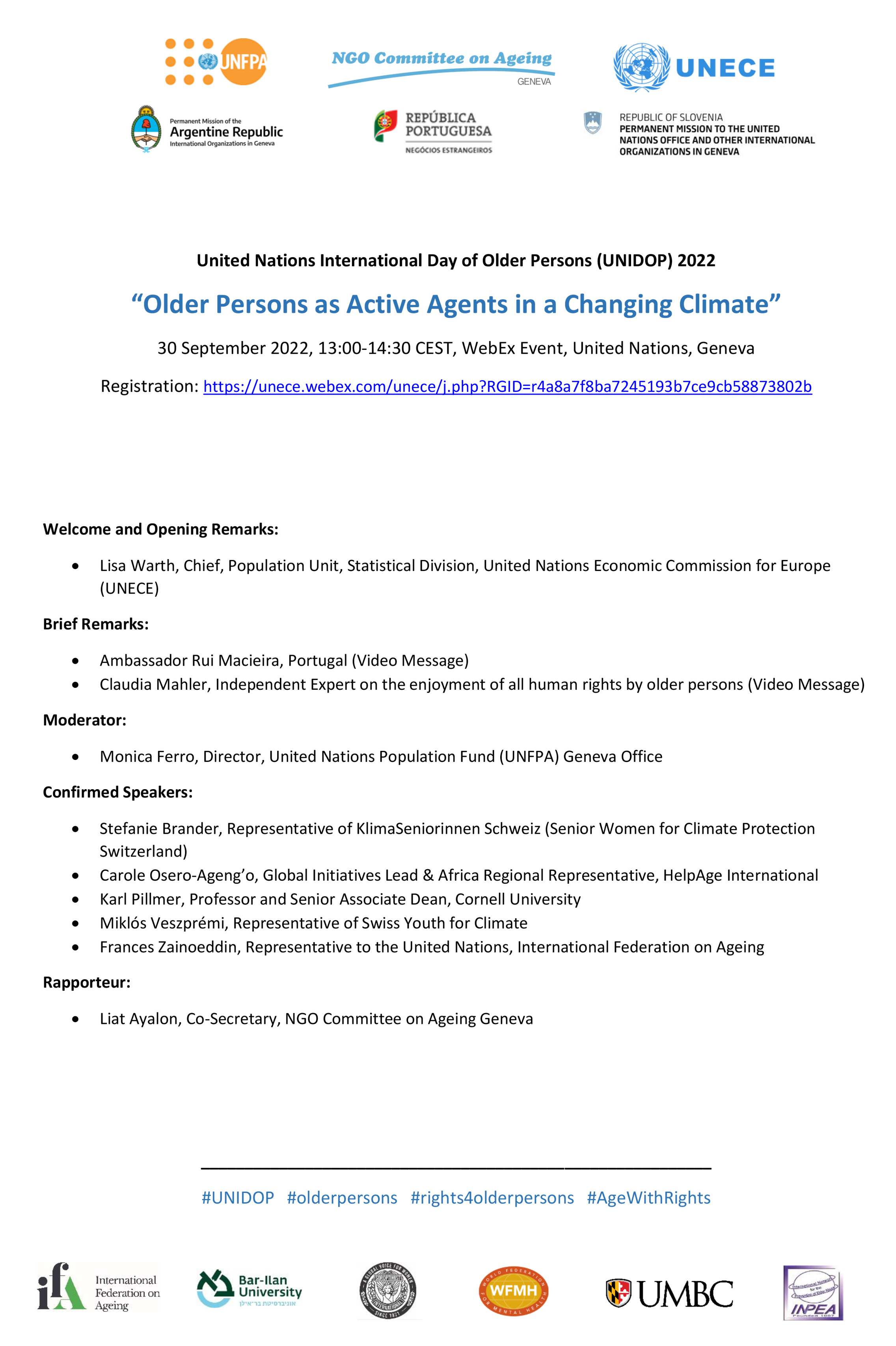DATE: 30 September 2022
TIME: 13:00 - 14:30 CEST

The climate crisis impacts the entire globe, and persons of all ages experience the negative and harsh consequences of climate change. However, climate change disproportionately impacts older persons, especially older women, persons living in situation of poverty, and older persons with disabilities. Despite this, older persons are often not consulted or included in efforts to address the climate crisis.
The impact of climate change is clearly seen, and it is evident that governments and industry leaders need to take action. But how can older persons contribute to and be active agents to combat against climate change? Older persons have a powerful voice and have the right to use their voice to be actively and meaningfully engaged participants in climate change activism. Their experience and knowledge that comes from longevity, combined with their concern for the present and future, is a powerful combination and paramount in making sure the climate crisis is adequately addressed. It is key that intergenerational partnerships become integrated into the government and private sector to effectively work towards climate change and ensure success.
Why must older persons be active agents in tackling the climate crisis? Climate change impacts human rights including “rights to life, health, food, water and sanitation, housing, decent work, culture, and development”1. Based on past research, older persons benefit from contributing to the climate change movement and enjoy improved mental and physical health as a result of their involvement2. Moreover, society at large can benefit from older persons’ knowledge and experience with traditional practices when tackling the climate crisis.
States have legal obligations to “implement climate policies that empower all people, including older persons, by ensuring their full and effective participation in climate action at all levels” (A/HRC/47/46 2021). This requires that meaningful opportunities must be created for older persons to participate in climate action, through the exchange of information and overcoming barriers to their inclusion. Nonetheless, to date, older persons have been excluded from most climate change policies despite their greater susceptibility to physical illness and mortality following severe climate events. This aligns with Sustainable Development Goal (SDG) 13, which urges nations to take urgent action to mitigate and adapt to climate change and its impact. In addition, climate change has important implications to many other SDGs (e.g., SDG 1 - No Poverty and SDG 5 - Gender Equality).
The UNIDOP 2022 event is a moderated conversation panel that will:
- Illustrate the need and power of having older persons as active agents in climate change;
- Recognize that resources are needed to help communities set up adaptation and mitigation measures; and
- Highlight the responsibility of all States to respect, protect and fulfil older persons’ human rights with an emphasis on promoting these amidst climate change.
Objectives of the event:
- To advocate for climate change action;
- To promote action and impact including at community and grassroots levels;
- To ensure that research informs policy; and
- To call on Member States to commit to a Convention on the Rights of Older Persons in which climate change is taken into account.
